Oxfordshire World War Two bomber crash victims remembered
- Published
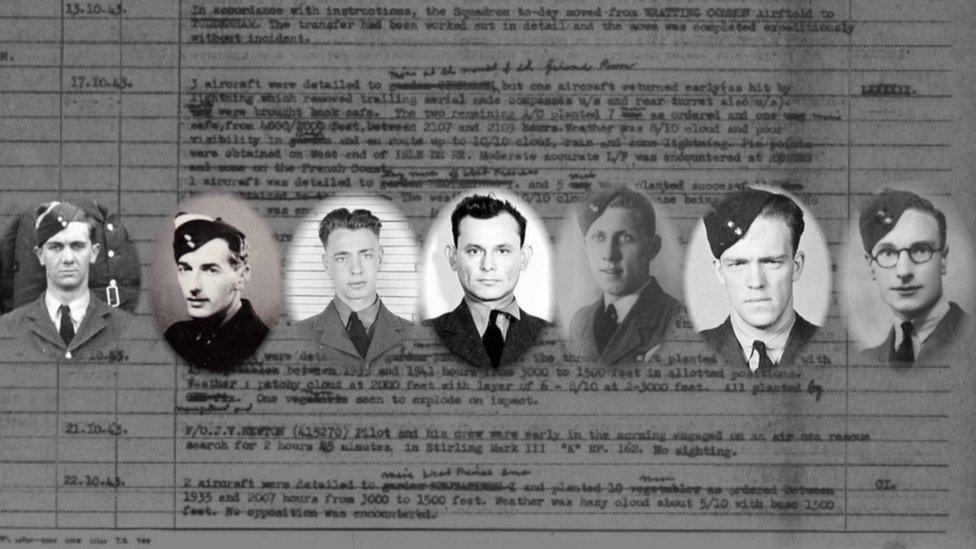
Wallace Jones, Terry Edwards, Kenneth Pollitt, Harold Spence, George Yates, Ervin Spencer and Leslie Thomas died in the crash in Ipsden
In October 1943, a Stirling bomber nicknamed Lulu crashed in an Oxfordshire village during a run-of-the-mill test flight.
The tragedy, in Ipsden in the Chilterns Hills, was recorded with just two typed lines in an RAF operations book, and it risked fading from memory.
But 80 years on, seven families and one village have refused to forget.
And for one man, piecing together what happened became a journey of obsession, mystery and, ultimately, community.
On Remembrance Day 2015, David Leslie MacSwayne's wife suggested he should find out more about his uncle - the man who inspired his middle name - and the crash.
Leslie MacSwayne was killed when Lulu crashed, along with fellow RAF airmen Terry Edwards, Wallace Jones and George Yates, and their Royal Canadian Air Force allies Kenneth Pollitt, Harold Spence and Ervin Spencer.
Year by year, archive by archive, David, from Portchester in Hampshire, learnt about the crash that killed his uncle - but the real breakthrough came when he realised he was not alone.
Other families had begun asking their own questions, including descendants in Canada.
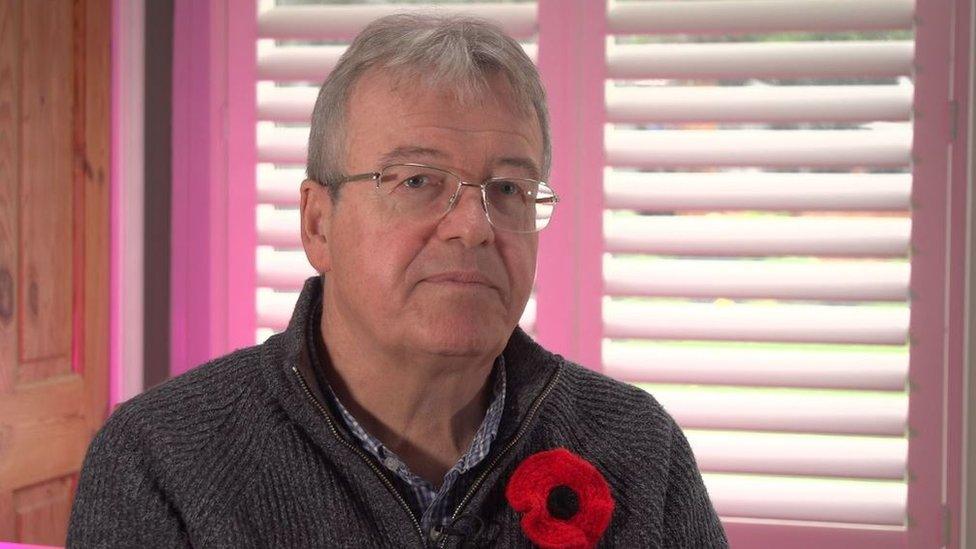
David MacSwayne has been piecing together his uncle's past for several years
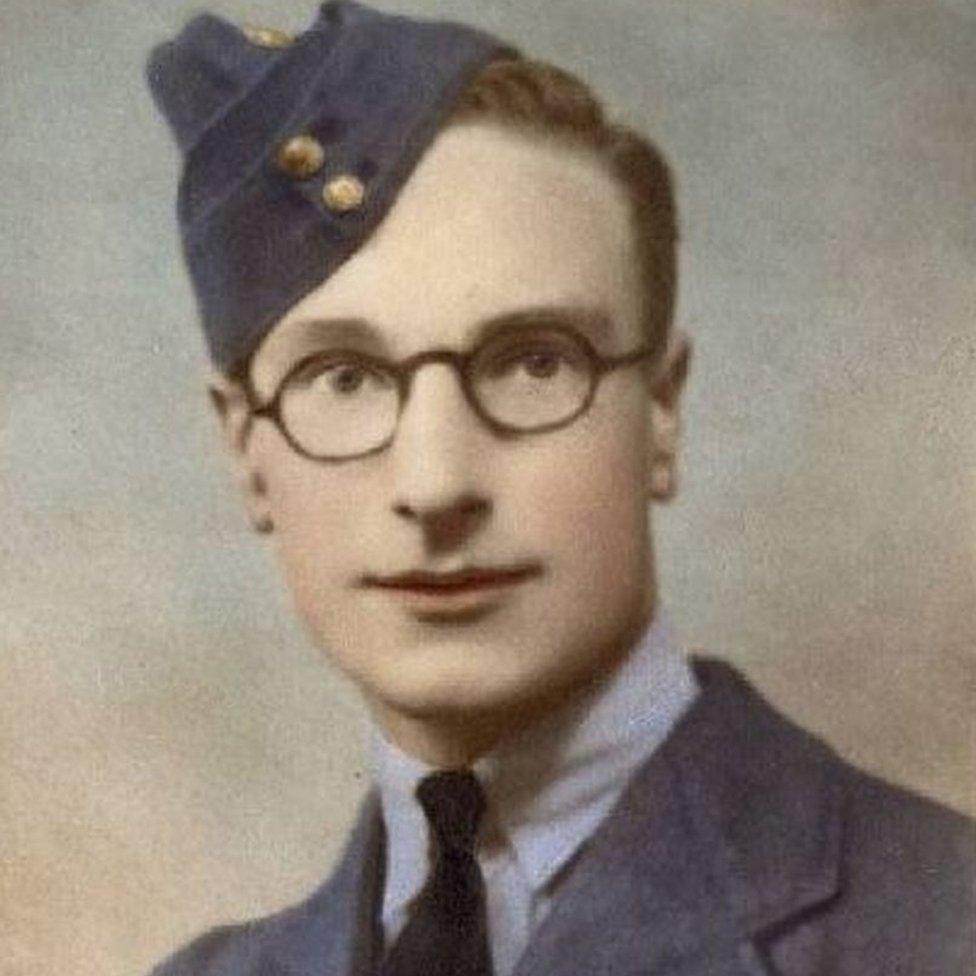
He said his uncle Leslie and the other men he died with had been largely forgotten
David tracked down living relatives and they began sharing their parts of the puzzle.
In Ipsden, David was welcomed with open arms by villagers who knew of Lulu's crash and spoke of the shadow it had cast over its wartime generation.
They helped pinpoint the crash site, an RAF memorial flypast recreated the plane's final course and local metal detectors unearthed shards of Lulu herself.
"The seven men have laid quietly in their graves for 80 years, largely forgotten by their families," said David, adding: "Except for Ipsden.
"They've remembered this traumatic moment. It's when World War Two came to their village and it was the largest loss of life in their village."
But Ipsden soon revealed even closer connections to the crash. Living witnesses.
"Look at that plane, it's not flying properly," cried five-year-old Irene Lindsay, who was walking home from school with her brother, Roy, when Lulu began falling from the sky.
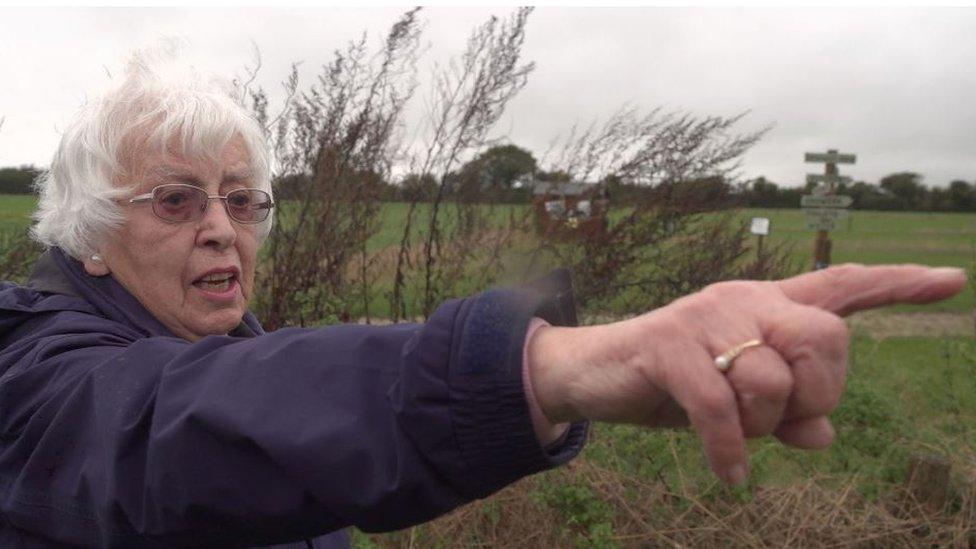
Irene Lindsay recounted the horror of the plane crash that she witnessed as a child
Irene, who is now 85 and living in Reading, remembers the crash like it was yesterday.
"Suddenly it disappeared and up came a big plume of smoke," she said, adding: "Our hearts just, oh it was terrible."
As Irene retraced the footpaths, she recounted the horror of thinking the plane had crashed onto her house, where her mother was preparing their tea.
"When I got there, there were our six little cottages still as they always were - oh the relief," recalled Irene.
But one key question remained, why did Lulu crash?
For the families, competing theories have made it somewhat of a mystery.
Some pondered over mechanical failure after a lightning strike, some reports hinted at human error.
The cousin of pilot Wallace, Tim Warren, from France Lynch, between Stroud and Cirencester in Gloucestershire, said: "The official version is they were unauthorised low flying, and really I feel that knowing they were young men who'd seen their comrades go and not come back, they were taking the opportunity to have a bit of fun."
David thought they may have been flying low to practice dropping supplies.
They may never find out the exact truth, but in trying, they have built a community of sorts.
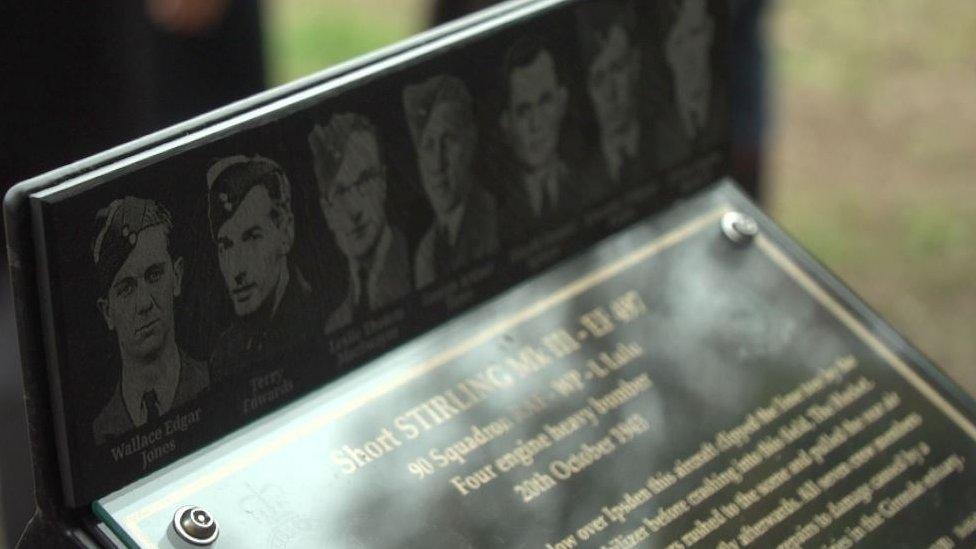
A memorial plaque to remember the airmen was unveiled in Ipsden last month
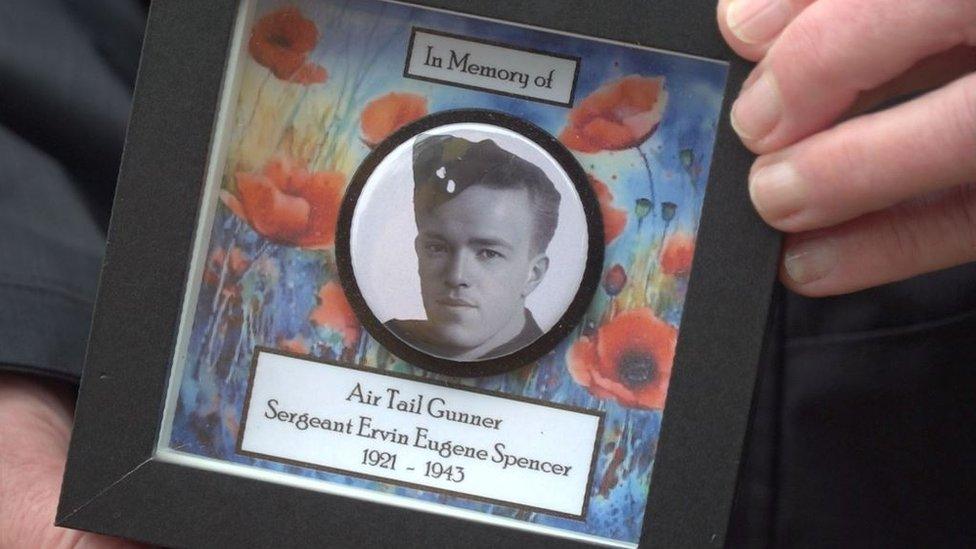
A relative of Ervin said she was "thankful we brought their memory alive again"
In October, families from across the world travelled to watch David unveil a memorial plaque in Ipsden.
"It's one big family now," said Nan Spencer, whose husband Bert was 18 months old when his father, Ervin, died in the crash.
She travelled from Ontario for the reunion.
"I know there's a reason we've had to wait this 80 years," she said.
"The boys up there have said, 'Why did you take so long to get us together?'
"I'm just thankful that we brought their memory alive again."
James Bromfield, the cousin of Lulu's operator George, lives in Swansea, Wales.
"He was a photograph on the wall but now, this last two years, it's like as if he's come back to life," he said.
Joanne Bromfield, James' daughter, who also lives in Swansea, added: "It's maybe having a legacy to say that his life did matter, and what he did at such a young age mattered, and still matters."
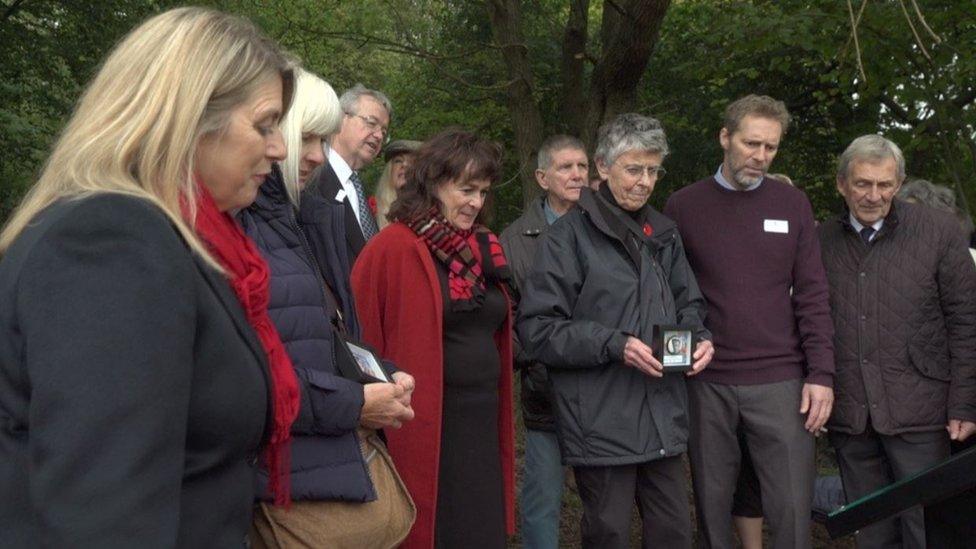
Family members have said the "legacy" of the seven men lives on

Follow BBC South on Facebook, external, X, external, or Instagram, external. Send your story ideas to south.newsonline@bbc.co.uk, external.